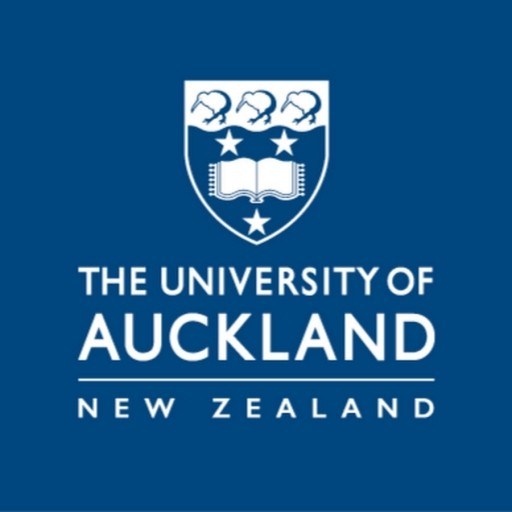Photos of university
The Bachelor of Social Work (BSW) at the University of Canterbury is a comprehensive undergraduate programme designed to prepare students for a rewarding career dedicated to supporting individuals, families, and communities. This programme offers a blend of theoretical knowledge and practical skills essential for effective social work practice. Throughout the course, students engage with a wide range of topics including human development, social policy, ethics, cultural competence, and mental health. The curriculum emphasizes critical thinking, cultural awareness, and professional integrity to equip future social workers with the ability to address complex social issues and advocate for positive change.
Students will participate in hands-on learning experiences through internships and field placements in diverse settings such as community organizations, healthcare facilities, and government agencies. These practical components are integrated into the programme to ensure graduates are well-prepared to navigate real-world challenges and to work ethically with vulnerable populations. The programme also offers specializations and electives that allow students to focus on areas like child and family welfare, mental health, or Māori and Pasifika social work practices, reflecting New Zealand’s diverse social landscape.
The University of Canterbury’s School of Social and Cultural Studies provides expert faculty members who are actively involved in research and community engagement, enriching the learning experience with the latest knowledge and best practices in the field. The programme upholds a strong commitment to social justice, equity, and human rights, encouraging students to become effective advocates and agents of change. Graduates of the Bachelor of Social Work are highly valued across public and private sectors and are prepared for professional registration with the New Zealand Social Workers Registration Board (SWRB). They are equipped to make meaningful contributions to society by supporting individuals through difficult life circumstances, promoting social inclusion, and fostering resilient communities.
The BSW requires a total of 480 points:
- 390 points comprising compulsory Social Work and Human Services courses
- one course (15 points) from 100-level Māori and Indigenous Studies or Te Reo Māori courses
- 75 points from one of the four elective streams.
BSW elective streams
Social Work students choose an elective stream that suits their academic interests and career objectives. In addition to Social Work, this allows you to specialise in another subject area, selected from:
- Human Services
- Sociology
- Psychology
- Māori and Indigenous Studies / Te Reo Māori.
See the degree diagram on this page and elective stream breakdown under 'Subjects and courses' below, for information on what this would look like in your first and second years.
Third year and beyond
Entry to Social Work courses at 300-level and above is competitive. Completed courses at 100 and 200-level can be credited to a Bachelor of Arts with a major in your elective stream subject if you are unable to or choose not to continue with a BSW.
In your fourth year, 75% of your work will be in the field, allowing you to put into practice the knowledge and skills you have gained.
Admission to UC with University Entrance, or equivalent, is required to enrol for a Bachelor's degree. Domestic applicants over 20 who do not hold University Entrance, or equivalent, may gain admission by providing evidence of their ability to complete tertiary study successfully. For information on gaining admission to UC please see how to apply for undergraduate qualifications.
You are also required to meet UC’s English language requirements.
Recommended preparation
Entry to the first year of the BSW is open to all students with entry to the University. While no particular school subjects are required, a background in subjects promoting communication skills such as English, history, geography or te reo Māori is useful. Volunteer work in the community is also good preparation.
Statistics is useful for the further study of Social Work.
The University of Canterbury offers a range of financial options to support students enrolled in its Social Work programmes. Domestic students can apply for government-funded student loans and allowances through StudyLink, which assist with tuition fees, living costs, and other study-related expenses. These financial aid options are designed to make studying more accessible and affordable, ensuring that students can focus on their academic and practical learning experiences without undue financial burden. International students are required to pay tuition fees upfront or as specified in their admission agreements; however, the university offers various scholarships and bursaries specifically for international students to ease financial pressures. These scholarships are awarded based on academic merit, financial need, or specific criteria related to the applicant’s background or intended research focus.
Additionally, students can seek external funding from government grants, charitable foundations, and industry-sponsored scholarships. The university also encourages students to explore part-time work opportunities both on and off campus to finance their studies, with the campus offering employment services that connect students with suitable roles. Payment plans and fee instalment options are available to help manage tuition payments comfortably over the duration of the programme. Some students may also qualify for financial hardship support if unforeseen circumstances impact their ability to pay. The university provides comprehensive support and information to guide students through the application process for these financial resources, emphasizing equitable access and the importance of financial planning for successful completion of the Social Work degree.
The Bachelor of Social Work (BSW) program at the University of Canterbury is designed to prepare students for a career in social work, a discipline dedicated to helping individuals, families, groups, and communities overcome social, emotional, and economic challenges. This undergraduate degree provides students with a comprehensive understanding of social justice, human rights, and advocacy, equipping them with both theoretical knowledge and practical skills necessary for effective intervention and support. The curriculum covers core areas such as social policy, mental health, child and family social work, community development, and ethical practice. Practical experience is a key component of the program, with students engaging in placements in various settings including NGOs, government agencies, healthcare facilities, and community organizations. These placements enable students to apply classroom learning in real-world contexts, develop professional competencies, and gain insight into the diverse needs of New Zealand society. The program emphasizes culturally responsive practice, particularly in relation to Māori and Pasifika communities, reflecting New Zealand’s commitment to biculturalism and multiculturalism. Students are encouraged to critically analyze social issues and develop innovative solutions to complex problems faced by vulnerable populations. Upon graduation, students are eligible to apply for registration as social workers with the New Zealand Social Workers Registration Board, allowing them to pursue professional practice in the field. The program fosters a multidisciplinary approach, collaborating with disciplines such as psychology, law, and health sciences, to give students a well-rounded perspective on social issues. The University of Canterbury's Social Work program also emphasizes ongoing professional development and lifelong learning, preparing graduates to adapt to the evolving demands of the social services sector.







